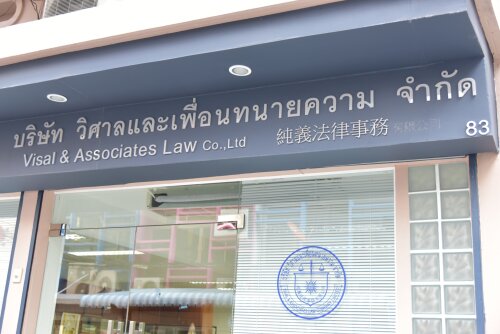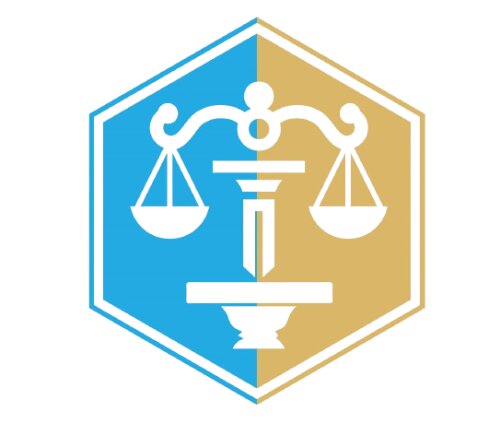Best Agriculture Lawyers in Bangkok
Share your needs with us, get contacted by law firms.
Free. Takes 2 min.
List of the best lawyers in Bangkok, Thailand
About Agriculture Law in Bangkok, Thailand
Agriculture law in Bangkok, Thailand, involves the regulations and legal frameworks that govern agricultural practices, land use, trade, and related activities within the region. While Bangkok is a bustling urban center, it remains a crucial hub for agricultural trade and business in Thailand. This area of law is vital for protecting the rights of landlords, tenants, farmers, and corporations involved in agriculture, ensuring fair practices, and promoting sustainable growth. The unique blend of traditional farming and modern agricultural practices in Thailand raises specific legal challenges and opportunities. Consequently, understanding these nuances is essential for anyone involved in the agricultural sector.
Why You May Need a Lawyer
Several situations may prompt individuals or businesses to seek legal advice in agriculture. Land transactions often require navigating complex legal requirements. Farmers and agricultural businesses may face issues related to land ownership, tenancy agreements, and environmental regulations. Legal guidance can be crucial in dispute resolution, whether it's settling conflicts between landowners and tenants or addressing breaches of contract. Furthermore, businesses engaged in international trade of agricultural products may need assistance understanding export-import regulations and compliance. A lawyer specializing in agriculture law can assist with navigating these intricate legal landscapes, ensuring compliance, and safeguarding your interests.
Local Laws Overview
The local laws pertaining to agriculture in Bangkok are anchored in Thailand's Land Code, Civil and Commercial Code, and various agricultural-specific regulations. Key aspects include:
- Land Ownership and Use: Foreigners are generally prohibited from owning land in Thailand, but there are exceptions and alternative structures such as leasing agreements.
- Environmental Regulations: Laws focus on sustainable practices, including controls on pesticide use and preservation of agricultural biodiversity to mitigate environmental impacts.
- Trade and Export Controls: There are specific regulations governing the trade of agricultural products to ensure compliance with international standards and protect domestic markets.
- Intellectual Property Rights: Protection of innovations in agriculture, including plant varieties and bio-technological advancements.
Frequently Asked Questions
What are the primary agricultural products of Bangkok?
Despite being a large city, agricultural participation includes market trading, packaging, and distribution of rice, fruits, vegetables, and ornamental plants from surrounding areas.
Can foreigners lease agricultural land in Thailand?
Yes, foreigners can lease agricultural land under long-term leases, provided they comply with Thai law, which often requires additional legal processes for registration and compliance.
What environmental considerations are there for farmers in Bangkok?
Farmers must adhere to practices that reduce environmental impact, such as regulated pesticide use and waste management, to comply with environmental laws.
How does the government support agricultural innovation?
The Thai government offers various forms of support, including grants, research and development incentives, and programs aimed at promoting agricultural technology advancements.
What are the common legal issues faced by farmers in Bangkok?
Farmers often encounter issues like land disputes, contract breaches with buyers, compliance with export regulations, and environmental challenges.
Are there subsidies available for farmers in Bangkok?
The Thai government provides subsidies and financial support schemes for farmers to promote food security, improve yields, and encourage sustainable practices.
What role do cooperatives play in Bangkok's agriculture sector?
Cooperatives assist in collective bargaining, enabling farmers to access better pricing, shared resources, and fair trade practices.
How can a lawyer help with agricultural contracts?
A lawyer can draft, review, and advise on contracts to ensure they align with Thai law and protect the client's interests in transactions or partnerships.
What is the significance of intellectual property in agriculture?
Intellectual property rights protect innovations and developments in agricultural technology, supporting the commercial interests of inventors and promoting further research.
Are there specific regulations for organic farming?
Yes, Thailand has established standards and certification processes for organic farming, aimed at promoting healthy practices and distinguishing organic products in the market.
Additional Resources
For further information and assistance, individuals can contact the following resources:
- Thailand Ministry of Agriculture and Cooperatives: Responsible for agricultural policy and support.
- Department of Land: Provides guidelines on land use and ownership issues.
- Thailand Board of Investment: Offers advice on investments in the Thai agriculture sector.
- Thai Chamber of Commerce: A useful resource for trade-related queries and networking with industry stakeholders.
- Office of the Consumer Protection Board: Ensures fair practices in agricultural consumer markets.
Next Steps
If you require legal assistance in agriculture, consider reaching out to a law firm specializing in agricultural law or a local legal adviser with expertise in land, trade, and environmental compliance. It's important to consult with someone familiar with the specific requirements and nuances of Thai law to ensure your activities align with current legal frameworks and to secure your interests effectively.
Lawzana helps you find the best lawyers and law firms in Bangkok through a curated and pre-screened list of qualified legal professionals. Our platform offers rankings and detailed profiles of attorneys and law firms, allowing you to compare based on practice areas, including Agriculture, experience, and client feedback.
Each profile includes a description of the firm's areas of practice, client reviews, team members and partners, year of establishment, spoken languages, office locations, contact information, social media presence, and any published articles or resources. Most firms on our platform speak English and are experienced in both local and international legal matters.
Get a quote from top-rated law firms in Bangkok, Thailand — quickly, securely, and without unnecessary hassle.
Disclaimer:
The information provided on this page is for general informational purposes only and does not constitute legal advice. While we strive to ensure the accuracy and relevance of the content, legal information may change over time, and interpretations of the law can vary. You should always consult with a qualified legal professional for advice specific to your situation.
We disclaim all liability for actions taken or not taken based on the content of this page. If you believe any information is incorrect or outdated, please contact us, and we will review and update it where appropriate.















